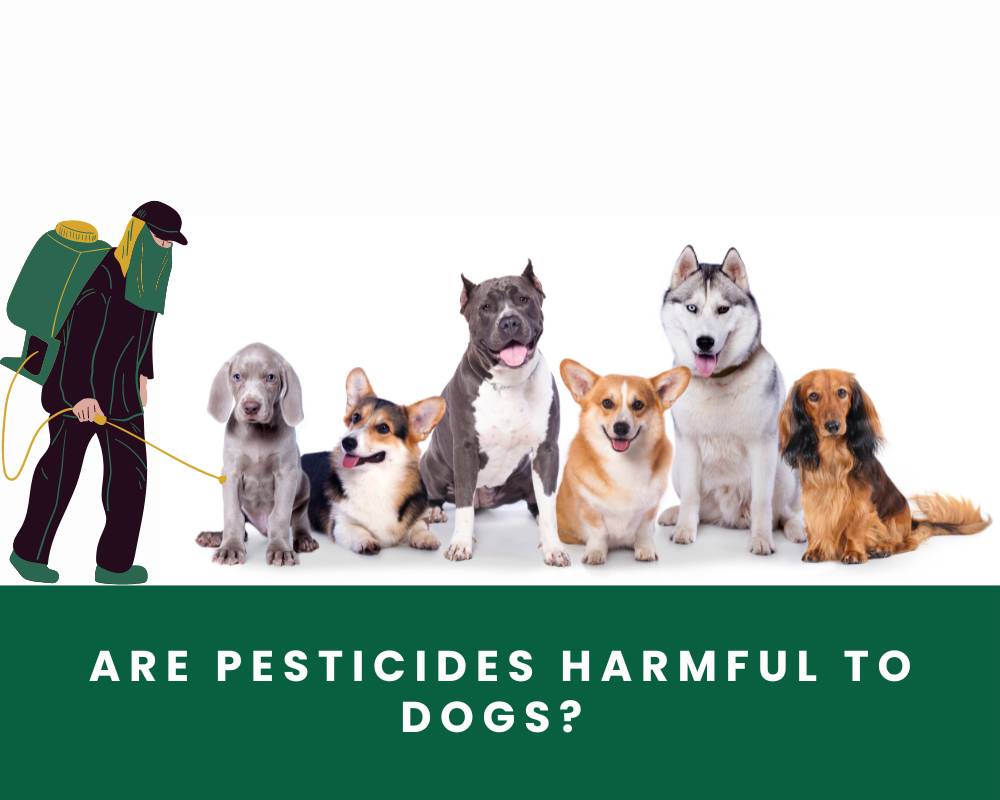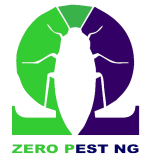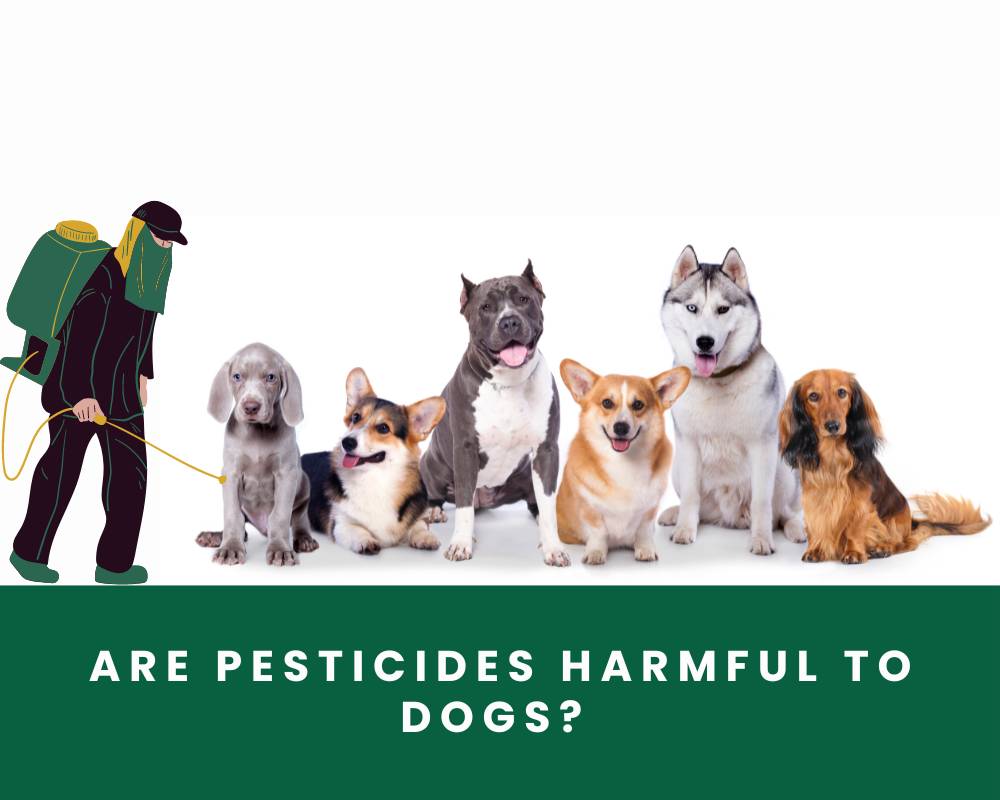
Yes, pesticides are harmful to dogs just as they are to humans. Pesticide poisoning in dogs happens when they inhale, ingest, or sometimes even come in contact with some types of pesticides.
Pesticides can be found in different places, so the rate of it affecting dogs just like it affects humans is almost the same. When a dog comes in contact with even a small amount of pesticide, irritations can happen and may lead to physical harm.
Just as humans should be careful of pesticides as some of them have an adverse effect on the body, they should be kept away from animals too.
Signs of pesticide poisoning in dogs
There are many ways that dogs might be exposed to pesticides and so many symptoms that may come with them. Dog pesticide poisoning symptoms mostly depend on how harmful the pesticide is, but dogs can come in contact with pesticides by eating dead insects and bugs.
It is noteworthy that these insects and bugs may have been sprayed with pesticide, walked on a lawn sprayed with insecticide, licked the feed after eating grass that has been sprayed with pesticide and so much more.
Here are some symptoms of insecticide poisoning in dogs:
- Vomiting or diarrhea
- Trouble breathing
- Abdominal pain
- Irritation all around the body or affected areas
- Tremors
- Distress
- Pawing at the face
- Confusion
- Burns
- Seizures
- Death
If you suspect any of these symptoms happening all at once, you’ll need to take your dog to the vet.
How To Prevent Your Dog From Getting In Contact With Pesticide
Pets come in contact with a lot of pesticides when they are out and about licking, sniffling, digging, and even eating unknown objects on the ground.
Whatever it is, dogs also come in contact with these harmful chemicals just as humans do.
They can be dangerous and hazardous to dogs, but all these can be prevented and you can keep your dog safe and sound.
Dogs are more susceptible to diseases than humans, so you need to bear this in mind as they are more likely to be affected by the side effects of pesticides. Some ways you can prevent your dog from coming in contact with pesticides are;
- Keep your dog away from the area when you need to apply or spray pesticides. You’ll have to remove any chew toy or something from the way so they do not get their paws on them later on.
- After treating the area, keep pests away from it until it completely dries off and it has been well-ventilated. Remember that dogs can also be affected by the fumes coming from pesticides.
- Since your dog would most likely eat a dead animal, you can opt for pesticides that have a much lower percentage of secondary poisoning. This way, even if your dog eats a poisoned animal without your knowledge, nothing would happen to them.
- Read the label instructions on pesticide products as most of the time, it gives instructions on how to keep pet safe during applications.
- Keep pesticide containers tightly sealed and stored away from pets. You can keep it in locked rooms, or in a cabinet so high up your pet cannot reach it.
Treatment of Pesticide Poisoning in Dogs
The treatment of pesticide poisoning in dogs depends entirely on the kind of pesticide the dog came in contact with. Some of the treatments that the veterinarian may administer are:
Removal of Pesticide Residue
If there are still remnants of the pesticide on your dog’s skin or fur, then the veterinarian would have to remove all of it before beginning the treatment properly. The removal includes a bath with a good shampoo to get all the residue off.
Vomiting
This usually happens if your dog has ingested the pesticide. The veterinarian may induce vomiting to help your pet get rid of the poison. With certain pesticides, vomiting is not at all recommended.
IV Fluid Therapy
This may be necessary for dogs that are dehydrated and need as many fluids as they can in their systems.
Drugs
Drugs are administered depending on the type of pesticide that was ingested. Some of the drugs help to stabilize the nervous system.
Can pesticides kill dogs
Yes, pesticides can be very dangerous to dogs and can even be lethal in some cases. Many pesticides, including insecticides, herbicides, and rodenticides, contain toxic chemicals that can be harmful to dogs if ingested or absorbed through the skin. Depending on the precise ingredient consumed and the amount, the toxic effects of pesticide poisoning can range from moderate to fatal. IngesIngestion of pesticides is one of the top 10 toxicities among pets reported by the ASPCA Animal Poison Control Centertion.
Top Pesticides to Keep Away From Dogs
The list of pesticides that should be kept away from pets ranges depending on the chemical formulation of said pesticides. Some of them can be very deadly when consumed, so it would be best to generally keep them away from dogs.
Dichlorophenoxyacetic Acid (2,4-D):
A few recent studies show links between lawn chemicals using 2,4-D to two types of canine cancers. The World Health Organization’s International Agency for Research on Cancer classified 2,4-D as “possibly carcinogenic to humans … based on inadequate evidence in humans and limited evidence in experimental animals.”
4-Chloro-2-Methylphenoxypropionic Acid (MCPP):
These act at multiple sites in a plant to disrupt protein synthesis altering growth. Exposure to large amounts of concentrate/industrial formulas may rarely lead to myotonia, ataxia, and tremors.
Other pesticides to keep away from your pet
The Takeaway
As keeping yourself safe and staying away from harmful pesticides is important, the same applies to dogs as well. You can grow organic gardens and farmland that would not need chemical pesticides, and keep tools away from the dogs.
Whatever the situation, pay attention and be sure to rush your dog to the vet if anything were to happen.

